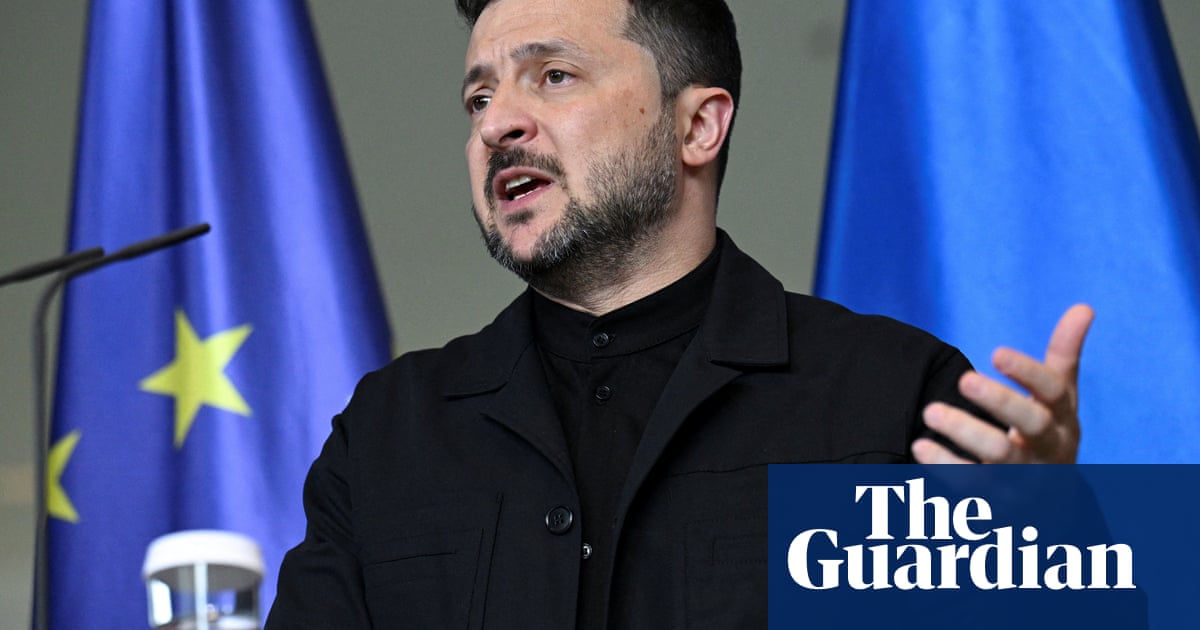Ukraine has said it does not expect any results from talks with Russia in Turkey, unless Moscow provides its peace terms in advance, accusing the Kremlin of doing “everything” it can to sabotage the potential meeting. Moscow said it was sending a team of negotiators to Istanbul for a second round of talks on Monday but Kyiv has yet to confirm if it will attend. “For over a week now, the Russians have been unable to present the so-called memorandum,”Volodymyr Zelenskyysaid on X on Friday, referring to a document Russia says it has prepared outlining its conditions for peace. “For a meeting to be meaningful, its agenda must be clear, and the negotiations must be properly prepared,” the Ukrainian president added. “Unfortunately, Russia is doing everything it can to ensure that the next potential meeting brings no results.” Russia says it will provide the memorandum at the talks in person on Monday. But Ukraine suspects it will contain its maximalist demands that Kyiv has already rejected.
Zelenskyy said he and the Turkish president,Recep Tayyip Erdoğan, discussed on Friday the conditions under which Ukraine would participate in the Istanbul meetingproposed by Russia. “There must be a ceasefire to move further toward peace. The killing of people must stop,” Zelenskyy wrote on Telegram. While he didn’t commit to Ukraine’s attendance, he said that in their call he and Erdogan discussed the possibility of organising a four-way meeting with the leaders of Ukraine, Russia, Turkey and the US. Erdogan said it was important that Russia and Ukraine sent strong delegations to Istanbul, adding that a leaders’ meeting could contribute to the peace process, the Turkish presidency said.
A leading US senator warned Moscow it would be “hit hard” by new US sanctions. Republican Lindsey Graham said on a visit to Kyiv that the US Senate was expected to move ahead with a bill on sanctions against Russia next week. Graham, who met Zelenskyy in the Ukrainian capital, told a news briefing he had talked with Trump before his trip and the US president expected concrete actions now from Moscow. Graham accused the Russian president, Vladimir Putin, of trying to drag out the peace process and said he doubted the Istanbul meeting would amount to more than a “Russian charade”.
Trump, meanwhile, said on Friday that both Putin and Zelenskyy were stubbornand that he had been surprised and disappointed by Russian bombing in Ukraine while he was trying to arrange a ceasefire.
Pro-Kremlin websites are ramping up a disinformation campaign targeting Ukrainian refugees in Poland, using AI-generated content to stoke resentment ahead ofSunday’s presidential election, experts warned. Russia-aligned accounts have “inflamed negative sentiment towards Ukrainians”, calling them “pigs” and accusing them of planning armed attacks, the London-based Institute for Strategic Dialogue said in a report on Friday. Ukraine ally Poland hosts about a million Ukrainian refugees – mostly women and children – and immigration has been a key issue for voters.
Ukraine has jailed a 21-year-old man for 15 years on allegations he guided missile attacks for Russia. The SBU security service said on Friday that on the orders of a Russian special services officer, the man travelled around the Ukrainian capital and its outskirts secretly photographing the locations of Ukrainian troops. It said the Kyiv resident, who was not identified by name, was also preparing attacks in the city on behalf of Russia and was caught red-handed while “spying” near a military facility.
